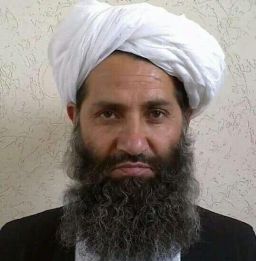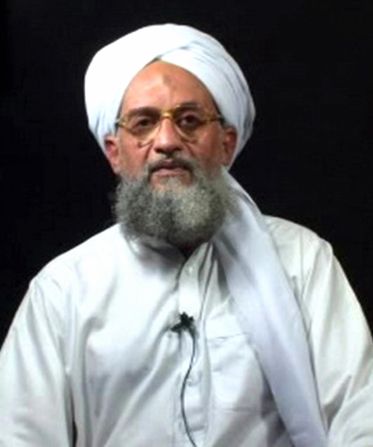Story highlights
NEW: Source tells CNN that Mawlawi Haibatullah Akhundzada is against participating in peace talks
A religious cleric from the Taliban's founding generation, he was previously senior deputy
He replaces Mullah Akhtar Mohammad Mansour, killed in a drone strike Saturday
The Taliban has named a senior religious cleric from its founding generation as its new leader, in a decision the Afghan militant group hopes will avoid succession disputes, analysts say.
Mawlawi Haibatullah Akhundzada was the “natural choice” to succeed Mullah Akhtar Mohammad Mansour, who was killed in a drone strike in Pakistan on Saturday, said Thomas Ruttig of the Afghanistan Analysts’ Network.
“He was already the senior deputy to Mullah Mansour. It’s a clever choice because he is a religious scholar from the founder generation of the Taliban, and was close to Mullah Omar,” said Ruttig, referring to the one-eyed mujahedeen commander who led the group from its inception in 1994.

“He may therefore be able to integrate the younger and more militant generation,” he said.
“The Taliban understood that they needed a new consensus leader, and quickly, to prevent what was possibly the aim of the U.S. and Afghan governments – to create turmoil around the succession.”
OPINION: Challenges for new Taliban leader
Respected cleric
The new Taliban leader belongs to the Noorzai tribe and is in his late 50s – although the Taliban claim he is 47 years old – and hails from the Taliban heartland in the Panjwai district of southern Kandahar province, according to Sayed Mohammad Akbar Agha, a founding member of the Taliban who lives in Kabul and says he knows the new leader.
While Akhundzada was involved in the mujahedeen struggle against the Soviet invasion in the 1980s, Agha said he was unlikely to have participated in front-line military activities.
He did judicial work between 1996 and 2001, the period of Taliban rule in Afghanistan, and after the group’s fall from power in late 2001 he worked as Taliban chief justice, according to Agha.
He became Mullah Mansour’s deputy when he succeeded Mullah Omar in 2013, and subsequently took an active part in the day-to-day running of the movement, playing a key role in negotiating a ceasefire with a dissident Taliban faction earlier this year.
Michael Semple, professor at the Institute for the Study of Conflict Transformation and Social Justice at Queen’s University Belfast, said Akhundzada was the author of “many of the decrees that Mansour used to provide religious cover for his actions.”
The Taliban
Where do Afghan peace talks stand?
Akuhnzada: No to peace talks
A source in the Taliban reached through an intermediary told CNN that Akhundzada told commanders and shura members that there will be no peace talks.
The source said that the appointment of Akuhnzada “will bring back the era of Mullah Omar” with “a simple life, loyalty, and terror on enemies.”
An educated and well-respected figure within the organization, his authority stemmed principally from his reputation as a religious teacher and scholar, which meant he could prove easier to negotiate a peace settlement with than his predecessors, Agha said.
Ahmed Rashid, author of five books on the Taliban and the region, said that Akhundzada’s position on talks with the Afghan government was not known.
The Taliban has made strong battlefield gains against government forces in recent months, driving back Afghan troops from key positions and launching a string of bombings in Kabul. On Wednesday the group claimed responsibility for a suicide bombing in the capital that killed 10 people and injured four others, including two children.
OPINION: The war in Afghanistan – just what was the point?
Rashid said the Taliban hoped his appointment would herald a return to a more consensus form of leadership within the group.
“The new leader is neither a political figure nor a military figure but is known and respected for jurisprudence and legal decisions. He is bound to reach out to others in the shura to discuss all issues,” he told CNN, referring to the Taliban’s leadership council.
Mullah Omar’s son promoted
A Taliban statement announcing Akhundzada’s appointment said that all members of group’s leadership council pledged allegiance to the new leader, which was “a religious obligation.”
The statement also named his two deputies, Mawlawi Sirajuddin Haqqani and Mawlawi Mohammad Yaqoob.
Haqqani is the leader of Haqqani terror network, long aligned with the Taliban and al Qaeda, while Yaqoob is the son of former leader Mullah Omar.
Haqqani, who has a $10 million State Department bounty on his head, heads a extensive family-based criminal network based primarily in North Waziristan, Pakistan. It held captured U.S. soldier Bowe Bergdahl before he was repatriated in a prisoner swap.
Ruttig said the deputies represented the younger, more militant generation of the organization, which the Taliban was likely seeking to better integrate through their appointments.
Yaqoob’s selection could help boost the Taliban’s legitimacy in its southern Kandahar heartland, while Haqqani’s appointment could have the same effect in the network’s center of gravity in the east, he said.
Pledge of allegiance
The Taliban statement also confirmed the death of the previous leader, who was killed in a U.S. drone strike in Pakistan’s Balochistan province Saturday. It called on “all Muslims” to enter a three-day period of mourning for Mansour.
The Taliban had previously confirmed Mansour’s death to CNN but today’s announcement is the first public statement from the group acknowledging the death. U.S. and Afghan intelligence agencies had also independently confirmed his death.
Pakistan voiced objections over Mansour’s assassination, stating that the strike was a violation of its sovereignty.
Challenges for the next Taliban leader
Leaders of deadliest terrorist groups
Journalist Saleem Mehsud contributed to this report.

























